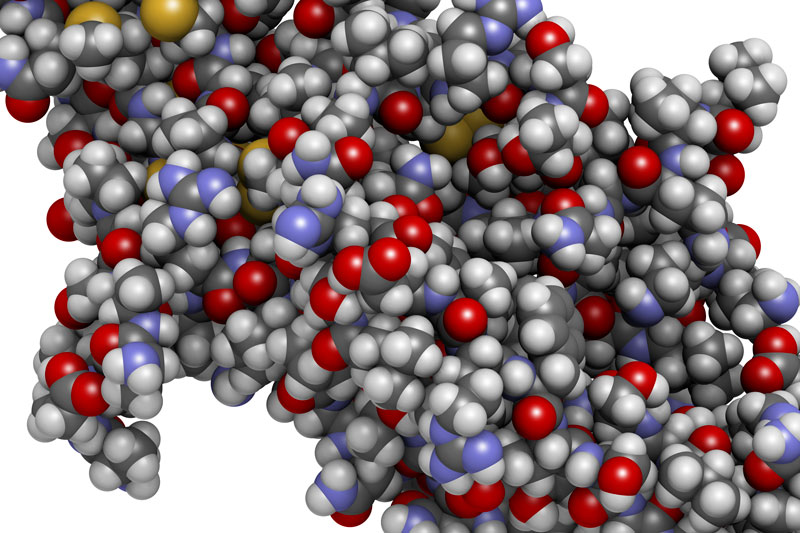Drugs used for IVF are:
- GnRH Agonists / Antagonists
GnRH is a hormone produced by the human brain. The drugs that we use in assisted reproduction are analogous to this hormone and are intended to stop the growth of the hormone LH, which causes ovulation. This can prevent unwanted rupture of the follicles and achieve controlled ovarian stimulation. These drugs are of two categories: GnRH agonists (under the trade names: Arvekap, Suprefact, Daronda etc.) and GnRH antagonists (under the trade names: Orgalutran and Cetrotide).
- Pituitary gonadotropins
These are the essential medicines we use in assisted reproduction. These are hormones that resemble the hormones produced by the pituitary gland, a part of the human brain, and are administered in order to produce many follicles. These drugs can be either recombinant gonadotropins, that is, drugs produced exclusively in the laboratory (under the trade names: Gonal-F, Puregon, Pergoveris etc.), or gonadotropins from the urine of women in menopause, which results in these hormones being at very high levels (with the trade names: Menopur, Merional, Altermon, etc.).
- Chorionic gonadotropin (hCG)
It is a drug that is administered only once, at the end of treatment and at a specific time (about 36-38 hours before egg collection), for the purpose of ripening the eggs (trade names: Pregnyl, Ovitrelle, Profasi).
- Progesterone
It is a drug commonly used after the egg collection to support the second phase of IVF, the luteal, and to reproduce an endometrium that will allow the implant and growth of the fetus. It is given either in the form of pills (trademark: utrogestan) or in the form of vaginal cream (trademark: Crinone).
- Other drugs, such as e.g. aspirin, antibiotics, cortisone, heparin, may be administered if necessary.
Purpose of the drugs
We use drugs in IVF for three purposes:
- To achieve controlled ovarian stimulation, that is, to prevent the follicles from rupturing before the day of egg collection.
- In order to be able to produce many follicles, many eggs and consequently many embryos, from which we select the best for transport within the uterus.
- To support the endometrium appropriately to receive the fetus.
DRUG SIDE EFFECTS
IVF has been in use since 1978 and the development of technology has made this method safer and easier for the couple.
Although there is much debate about the complications of these drugs, there have been no statistical studies in the last 25 years to blame them for either breast cancer, ovarian cancer or other side effects.
Specifically, regarding the likelihood of gynecological cancers due to hormone uptake, it is worth mentioning the results of a study by the US National Institutes of Health, which lasted for 30 years and concluded that there seems to be no strong relationship between hormonal therapies and breast, ovarian and endometrial cancers.
During the 30 years, 749 cases of breast cancer, 119 endometrial and 85 ovarian cancer were recorded among the 9,892 women who received infertility treatments. Overall, no increased risk of cancer was observed in women who did not receive infertility treatments, with the exception of women who received clomiphene for more than 12 cycles. In this group, there was a significant increase in the incidence of breast cancer.
Only 10% of the sample used gonadotropins, usually in combination with clomiphene. In this group, there was no increase in the likelihood of being infected with breast cancer, except in those women who remained childless. Researchers, however, believe that infertility is the risk factor rather than the use of drugs.
Also, these drugs do not reduce ovarian reserve in follicles. Each month, once the menstrual period is over, there are many follicles that begin to develop. However, only one goes and all the others are destroyed. During puberty, every woman has about 300,000 to 400,000 follicles, of which only 400 will eventually reach ovulation during a woman’s reproductive period. With drugs administered during IVF, we substantially prevent the natural destruction of the follicles that begin to develop in the first days of this cycle, help them grow and mature in a controlled manner, and of course, prevent ovulation so as to be able to collect them during egg collection.
Possible side effects observed by IVF drugs are simple side effects such as hot flashes, sweating, headaches. The only substantially serious side effect of IVF is ovarian hyperstimulation.






